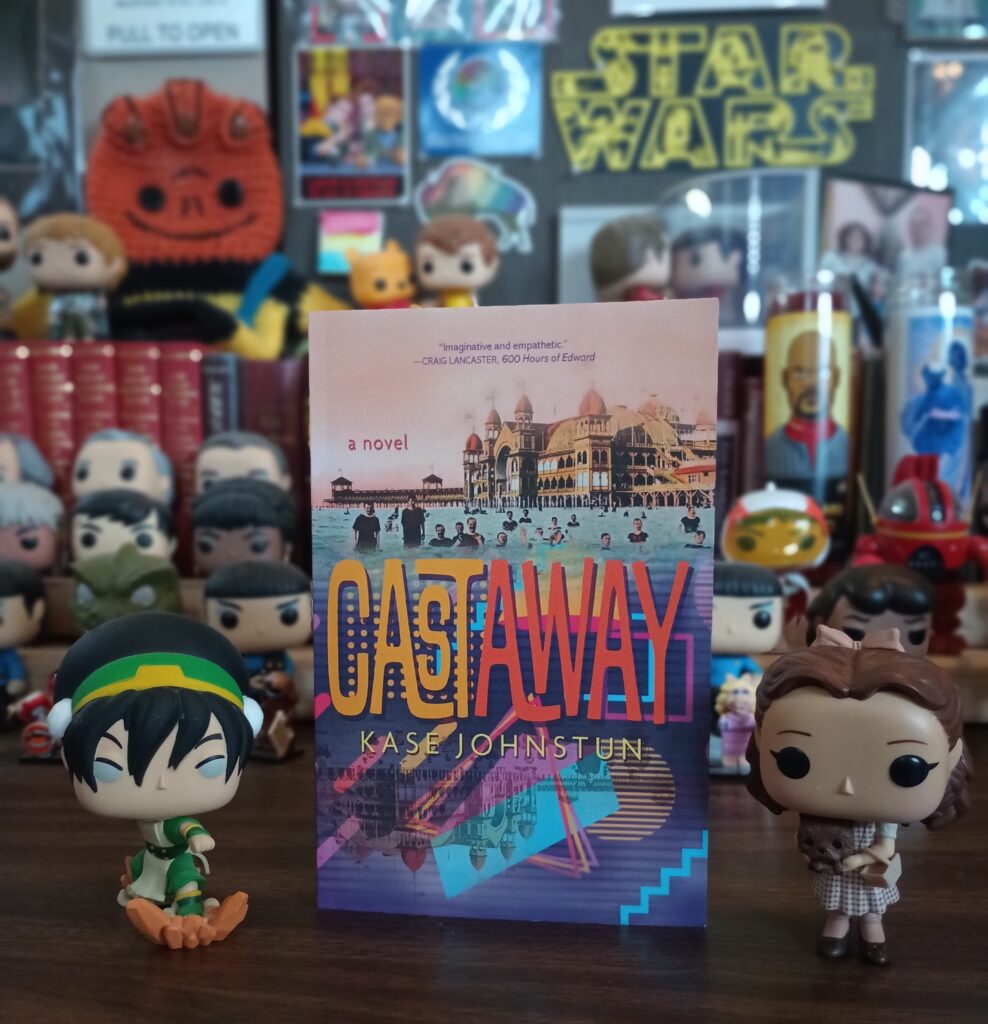Review
======
Title: Castaway
Author: Kase Johnstun
Publisher: Torrey House Press
Genre: Fiction
Year Published: 2024
Number of Pages: 257
Binding: Paperback
ISBN: 9781948814928
Price: $17.95
Reviewed by Jessie Christensen for the Association of Mormon Letters
“That’s when the idea came to me. That’s when I knew what I had to do to get my father back. I may never be white (unless I got that thing Michael Jackson got), but I could be rich.” After Chuy’s father is deported from Provo, Utah, and sent back to Mexico in 1990, the teenager comes up with a plan to get on the reality show Castaway and win the money he needs to reunite his family. In his short time in the United States Chuy has realized that his identity as an immigrant from Mexico situates him outside the power structures of his community. He can’t change his background, but he can change his income because money buys privilege and power.
Chuy’s story of adapting to Provo in the early 1990s is told in alternating chapters with his great-aunt Veronica, who immigrated to Utah from Mexico in the 1920s. Veronica helps Chuy’s family after they move to the United States, and although Chuy doesn’t get along with her at first, they become close over the years. In addition to Veronica, who encourages Chuy to learn English and do well in school, Chuy also befriends a fellow misfit student, Hans, who supports him in his dream of appearing on television.
Castaway tells a different kind of Utah story, one that doesn’t focus on the Mormon pioneers of the 19th century or the rural residents of today. Instead, its protagonists are the immigrants from Mexico who have been a part of Utah from the beginning (a beginning that flips today’s script by featuring Mormons who were immigrants into Mexican territory). Johnstun adds further nuance to the story by including both Veronica’s experience in the early 20th century and Chuy’s experience seventy years later, comparing and contrasting immigrant experiences during different periods of history. He also adds depth by locating Chuy and Veronica in a family from Mérida, a city on the Yucatan peninsula, that shares the unique heritage of the Yucatec Maya people. As they travel into the United States, they encounter new traditions from other Mexicans and Mexican Americans, such as the flour tortillas that become a treasured family staple.
The one flaw in the book is that the depth and nuance with which the author portrays the Mexican characters is not as present in the modern-day sections with Chuy. The book could have used another pass by an editor to catch inconsistencies in the time frame and geography of the modern chapters. The people of Provo are all presented as stereotypically uptight religious robots, which is an odd contrast to the way in which the Mexican characters are all written as unique individuals. Nevertheless, Castaway is a tender and engaging novel, at times funny and at others heartbreaking, and well worth your time.

